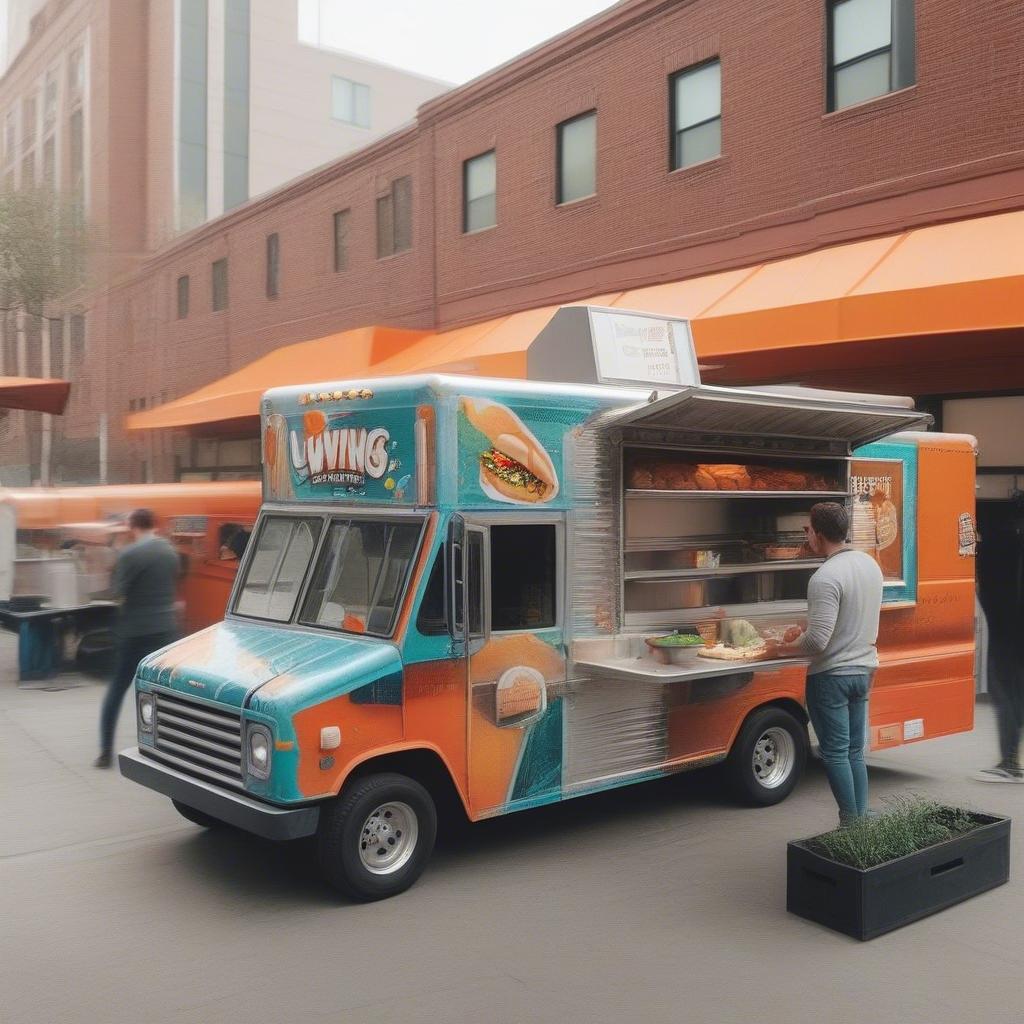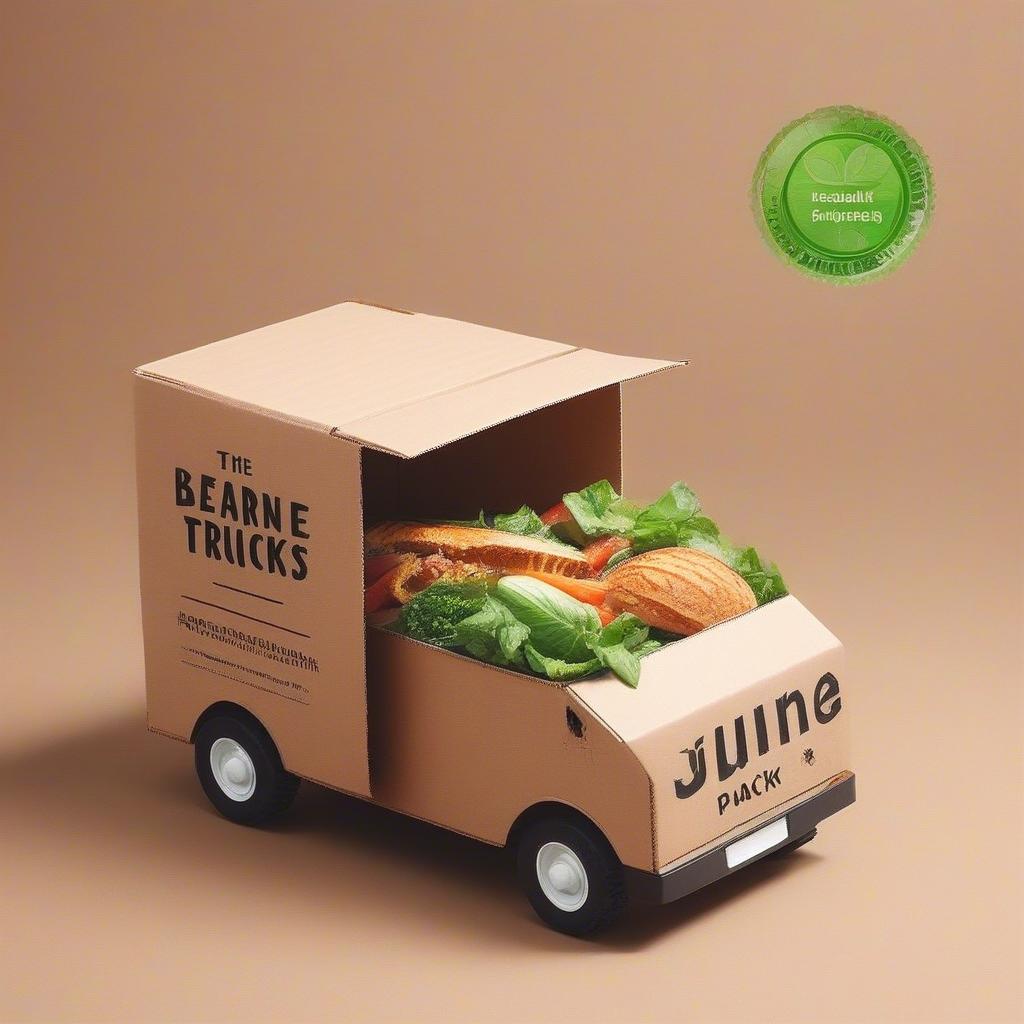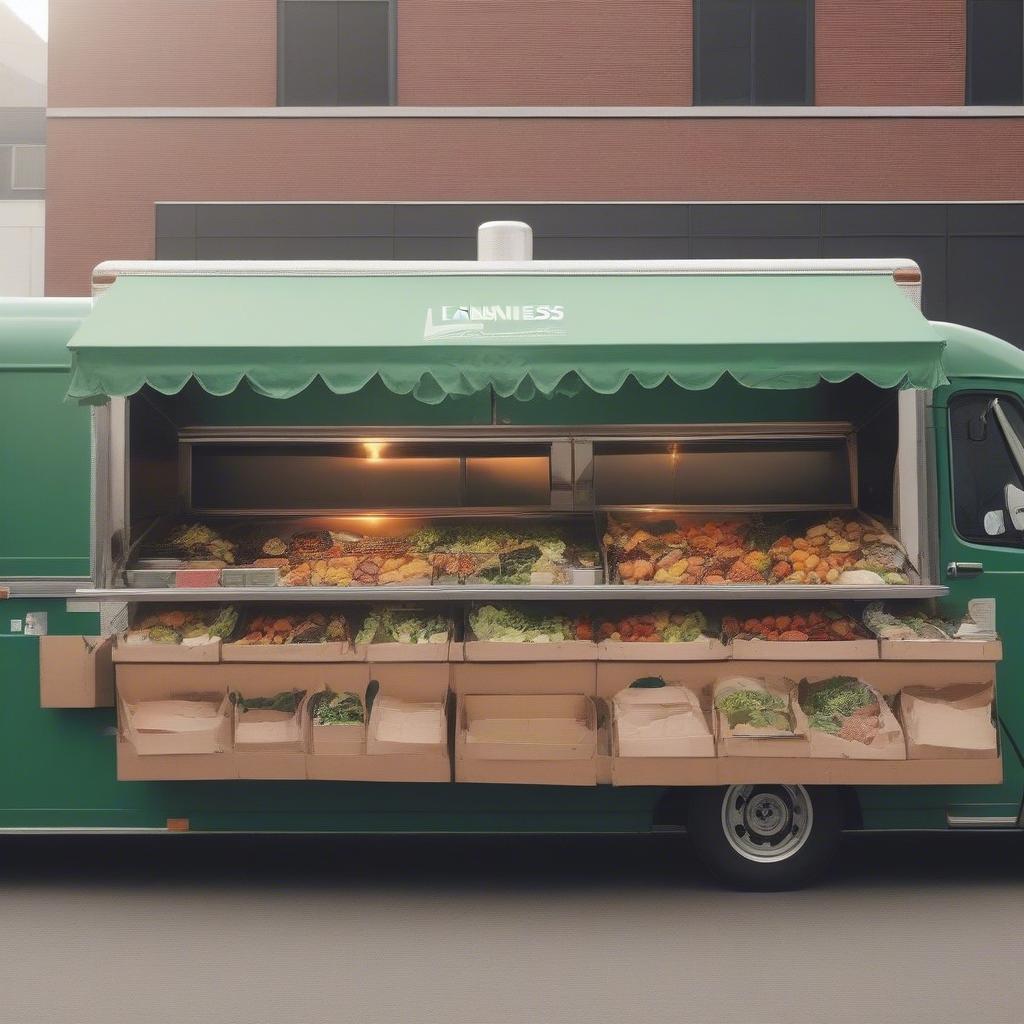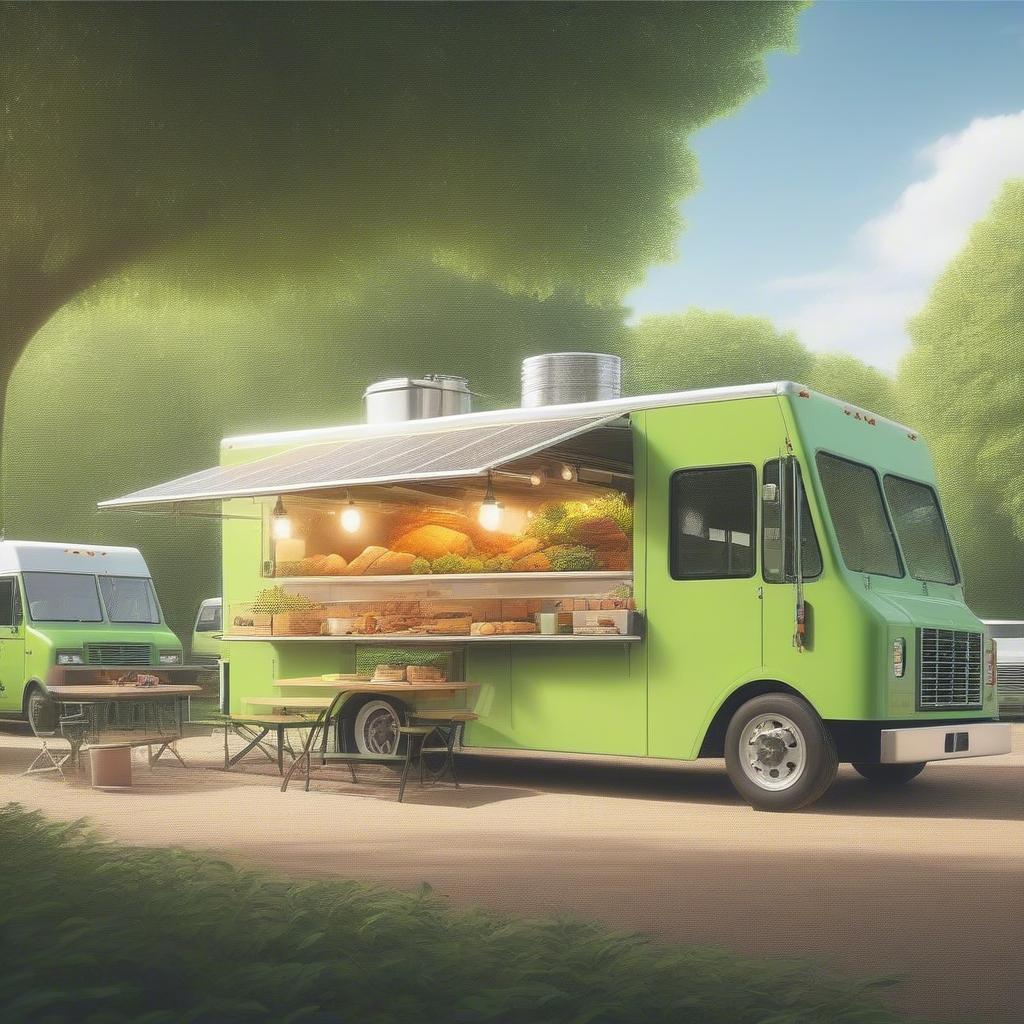
The aroma of sizzling garlic, the vibrant colors of fresh produce, the happy chatter of satisfied customers – these are the images that often come to mind when we think of a food truck. It’s a romantic vision, one of freedom and culinary creativity, but is owning a food truck really all sunshine and gourmet tacos? Like any business venture, there are significant advantages and equally important disadvantages to consider before taking the plunge into the world of mobile cuisine. This article delves deep into the realities of food truck ownership, exploring the highs and lows, the triumphs and the trials, to help you make an informed decision.
The Alluring Advantages of Food Truck Ownership
The appeal of a food truck is undeniable. It represents a path to entrepreneurship with a lower barrier to entry compared to a traditional brick-and-mortar restaurant. But the advantages go far beyond just lower startup costs.
Low Startup Costs Compared to Brick-and-Mortar Restaurants
One of the most significant advantages of a food truck is the significantly lower initial investment required. Setting up a restaurant involves hefty costs for leasing or purchasing a building, extensive renovations, and high overhead expenses. In contrast, a food truck requires a lower upfront investment in purchasing or leasing the vehicle, equipping it with necessary cooking appliances, and securing permits.
Example: A new restaurant might require an investment of several hundred thousand dollars, while a well-equipped food truck can be up and running for a fraction of that cost. This lower financial risk makes food truck ownership more accessible for aspiring entrepreneurs.
Actionable Tip: Research used food truck options to further reduce startup costs. Prioritize essential equipment and gradually add more as your business grows.
Flexibility and Mobility: The Freedom to Go Where the Customers Are
A food truck is a business on wheels, granting unparalleled flexibility and mobility. Unlike a restaurant rooted in a specific location, you have the freedom to follow the crowds, attend local events, and tap into areas with high demand. This mobility allows for strategic positioning and quick adaptation to market changes.
Why is this beneficial? You’re not relying on a single location. If one area isn’t profitable, you can move to another without being locked into a long-term lease.
Actionable Strategy: Use social media to announce your location daily. Experiment with different locations to find the most lucrative spots. Consider special event catering and local festivals to expand your reach.
Creative Freedom and Menu Control
As a food truck owner, you have complete creative control over your menu and brand identity. You can showcase your unique culinary talents and experiment with different dishes without the constraints of a traditional restaurant setting. You can tailor your menu to specific locations or events, catering to local preferences and seasonal ingredients.
Example: You can offer a special spicy menu at a chili cook-off or create a vegan-friendly menu for a farmers market.
Actionable Tip: Focus on developing a niche menu that sets you apart. Test new recipes regularly and gather feedback from customers.
Lower Overhead Costs and Efficient Operations
The reduced square footage and streamlined operations of a food truck translate to lower overhead costs compared to a restaurant. You’ll have lower rent, utility bills, and fewer staff members to manage. This efficiency makes it easier to achieve profitability, especially in the initial stages of your business.
Why is this important? Lower overhead allows you to reinvest more profits back into your business and expand faster.
Actionable Strategy: Implement efficient inventory management and minimize waste. Streamline your workflow to serve customers quickly and effectively.
Direct Customer Interaction and Community Building
A food truck creates a unique opportunity for direct interaction with your customers. You’ll be face-to-face with the people who enjoy your food, allowing you to build relationships, gather feedback, and foster a loyal following. This direct connection fosters a sense of community and personalizes the dining experience.
Benefit: This feedback is invaluable for menu development and business improvement.
Actionable Tip: Encourage customer interaction by asking for feedback, remembering regulars’ orders, and creating a friendly atmosphere.
Testing the Waters Before Committing to a Brick-and-Mortar
For those dreaming of owning a restaurant, a food truck can serve as a valuable stepping stone. It allows you to test your concept, build a brand, and establish a customer base before committing to the significant investment of a brick-and-mortar location.
Example: If your food truck specializing in vegan tacos becomes a hit, you could then explore opening a restaurant with the confidence that you have a proven concept.
Actionable Strategy: Treat your food truck as a living laboratory. Gather customer feedback, refine your recipes, and build your brand with the long-term goal of expansion in mind.
The Harsh Realities: Disadvantages of Food Truck Ownership
While the allure of food truck ownership is strong, it’s crucial to understand the challenges that come with the territory. Owning a food truck isn’t all fun and food; there are significant disadvantages you must be prepared for.
Limited Space and Storage Constraints
The compact size of a food truck, while beneficial for mobility, also presents limitations. Space is at a premium, requiring meticulous planning and efficient organization. You’ll need to maximize every square inch for food preparation, cooking, storage, and serving.
Challenge: Limited storage can impact inventory and menu variety.
Actionable Solution: Invest in space-saving equipment, organize your workspace meticulously, and create detailed inventory checklists.
Weather Dependency and Inconsistent Traffic
Your food truck’s success is highly dependent on weather conditions. Rain, snow, and extreme heat can deter customers and disrupt your business. Inconsistent traffic patterns can also impact your revenue. You might have a busy lunch rush one day and very few customers the next.
Example: A summer thunderstorm can drastically reduce customer traffic, leading to food waste and lost revenue.
Actionable Strategy: Have backup plans for inclement weather. Consider indoor or sheltered locations and monitor weather forecasts closely. Offer delivery or online ordering options to offset weather-related slowdowns.
Permits, Licenses, and Regulations: A Complex Web
Navigating the intricate web of permits, licenses, and regulations can be overwhelming and time-consuming. Each city, county, and state may have different requirements, often requiring ongoing compliance and renewals.
Challenge: Failing to comply with regulations can result in fines or even the temporary shutdown of your business.
Actionable Strategy: Research all necessary permits and licenses thoroughly. Contact local authorities for clarification and ensure you understand all regulatory requirements before starting operations. Consider seeking legal or professional help.
Maintenance and Repair Costs
The mobile nature of a food truck means that it requires regular maintenance and occasional repairs. Issues with the engine, generator, cooking equipment, or plumbing can disrupt your operations and lead to unexpected expenses.
Challenge: Unexpected breakdowns can lead to downtime and lost revenue.
Actionable Strategy: Develop a maintenance schedule, perform routine checks, and budget for potential repairs. Establish relationships with reliable mechanics and repair technicians.
Competition and Market Saturation
The increasing popularity of food trucks has led to a more competitive market. You’ll likely face competition from other food trucks and traditional restaurants. Differentiating your brand and menu is crucial for success.
Challenge: Standing out in a crowded market can be difficult.
Actionable Strategy: Develop a unique brand identity, offer exceptional customer service, focus on quality ingredients and recipes, and find a niche market to serve.
Long Hours and Physical Demands
Owning a food truck is physically demanding and requires long hours. You’ll be spending a lot of time on your feet, working in a confined space, and dealing with the stress of running a business.
Challenge: Burnout and physical exhaustion are common issues for food truck owners.
Actionable Strategy: Plan your workdays carefully, build a reliable team, delegate tasks, take breaks, and prioritize self-care.
Difficulty Securing Funding
While startup costs are lower than for a restaurant, securing funding for a food truck can still be challenging. Traditional lenders may be hesitant to finance mobile businesses.
Challenge: Limited access to traditional funding can hinder your growth.
Actionable Strategy: Explore alternative funding options, such as crowdfunding, micro-loans, or angel investors. Develop a solid business plan and demonstrate your potential for success.
Balancing the Scales: Making the Right Decision
Ultimately, deciding whether to pursue food truck ownership requires careful consideration of both the advantages and disadvantages. It’s not a venture for the faint of heart, but with the right planning, hard work, and resilience, it can be a rewarding path to entrepreneurship.
Steps to help you decide:
- Assess Your Passion: Are you truly passionate about food and the challenges of running a business?
- Evaluate Your Skills: Do you have the necessary cooking skills, business acumen, and problem-solving abilities?
- Research Your Market: Is there a demand for your food concept in your target area?
- Develop a Realistic Business Plan: Create a detailed plan that outlines your financial projections, marketing strategies, and operational procedures.
- Seek Mentorship: Connect with experienced food truck owners for advice and guidance.
- Be Prepared for Hard Work: Recognize that food truck ownership requires dedication, long hours, and a willingness to adapt.
How Learn Business Supports Food Truck Success
Navigating the complexities of starting and running a food truck can be daunting. That’s where Learn Business comes in. We understand the challenges that aspiring entrepreneurs face, and we provide the resources and support you need to succeed.
Learn Business offers:
- Comprehensive Business Plan Templates: Specifically tailored to the needs of food truck businesses, these templates provide a structured framework for developing your business strategy, financial projections, and operational procedures.
- Financial Planning Tools: Manage your cash flow, track expenses, and ensure financial stability with our user-friendly budgeting templates and financial management tools.
- Marketing Strategy Guides: Learn how to effectively promote your food truck using social media, local partnerships, and other marketing channels.
- Permitting and Licensing Checklist: Stay compliant with all legal requirements using our detailed checklist, helping you to navigate the often complex regulatory landscape.
- Operational Templates: Implement efficient workflows with our checklists and management tools, covering everything from inventory control to customer service.
- Access to a Supportive Community: Connect with fellow entrepreneurs, share your experiences, and learn from the successes and challenges of others in the food truck industry.
Learn Business understands the unique needs of food trucks and offers templates and resources designed to help these mobile businesses thrive. With our tools, you can create a solid foundation for your food truck business, avoid common pitfalls, and maximize your chances of success.
Conclusion: Your Road Map to Food Truck Success
Food truck ownership, like any entrepreneurial venture, presents both exciting opportunities and significant challenges. The advantages of lower startup costs, flexibility, and creative control are enticing, but the disadvantages of space limitations, weather dependency, and competition are real.
By carefully weighing the pros and cons, thoroughly planning your business, and utilizing resources such as Learn Business, you can increase your chances of achieving success. Food truck ownership may not be an easy road, but with passion, dedication, and the right support, it can be a very rewarding and flavorful journey. Remember to be realistic, plan meticulously, adapt to challenges, and always prioritize delivering an exceptional customer experience. The road to food truck success is paved with hard work, but it can lead to a fulfilling career doing what you love.



Leave a Reply